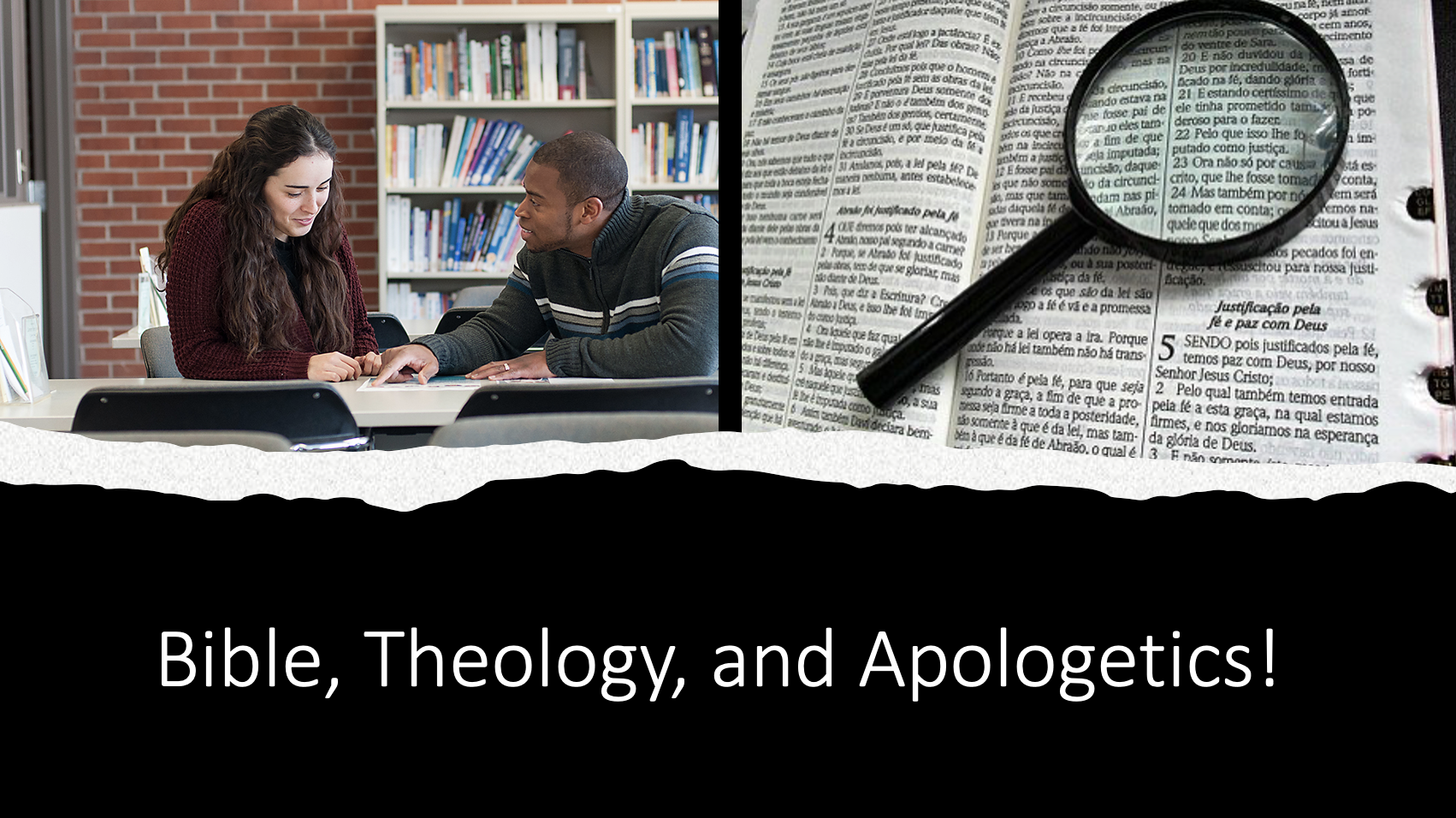I don’t often blog about academic programs, but Biola University is rolling out a new Bachelor’s degree that I think addresses so many of the intellectual, spiritual, and cultural needs of our current historical moment. I recently caught up with one of my colleagues, Dr. James Petitfils, to ask him about this new Bachelors in Bible, Theology, and Apologetics.
SEAN MCDOWELL: In a paragraph, what are the key ingredients of this program?
DR. JAMES PETITFILS: The Bachelors in Bible, Theology, and Apologetics consists of four interweaving curricular components: 1) Biola’s non-Bible general education core, 2) a broad foundation in Old and New Testament studies, 3) a sequence of systematic and integrative theology courses, and 4) a robust track in cutting-edge apologetics. The latter includes J.P. Moreland’s Apologetics and, as you know Sean, a few of your personally-designed courses (e.g., Evidence for the Resurrection and God, Evil, and Suffering). Along the way, these main academic pillars are fortified with 9 units focused on ministry application. Students interested in unpacking this more can jump on the program page and explore all the goodies loaded into this 120-unit degree.
MCDOWELL: How does this course of study seek to address some of the key needs of our current cultural and historical moment?
PETITFILS: I’m a scholar of ancient Christianity, so the remarks I make here are outside of my academic expertise. However, as a pastor for over 21 years and a sentient being living in 2021, I’ve noticed a few deep needs that this program seeks to address. First, the church today suffers from a near-crisis level of biblical illiteracy. Even the basic stories, motifs, and teachings of the scriptures are frequently confused or missing from the worldviews of so many well-meaning, truly-loving Christians. As a result, we’ve come untethered from our historic commitment to the scriptures and find ourselves out of step with our ancient ancestors in the faith and out of balance juggling contemporary trends and our sacred tradition. Emerging Christian leaders in 2021 need to not only know and correctly handle the scriptures, but they need to creatively teach and interweave those texts into the fabric of their lives and ministries. The BBTA offers exactly that kind of training.
MCDOWELL: What makes this program unique?
PETITFILS: From my vantage point there are many unique aspects of the new BBTA. For the sake of time, I’ll mention two. First, this program is the no-artificial-flavors, no-added ingredients, distilled essence of what Biola does best. I’m not just saying this as some kind of a marketing pitch; I’m really serious. When I think of Biola—and I’m not alone in this—I think of trusted theology, solid biblical-interpretive training, and some of the sharpest philosophical/apologetics minds winsomely contending in the marketplace of ideas and culture. The courses that make up our program are the beloved, hand-crafted products of these influential thinkers. Students aren’t getting “good” Biola; they are getting the best of Biola.
Secondly, it is unique because almost all of the lecturing professors are both incredible academics and effective practitioners. Often students have to decide between learning from careful scholars or “down-to-earth” pastors or professionals. In the BBTA program, students will certainly receive a rigorous education crafted by respected scholars in their fields, but the teaching and curriculum will not be delivered from a disconnected “ivory-tower.” Instead, so many on our incredible faculty team (yourself included, Sean) have their fingers on the pulse of current scholarship and their sleeves rolled up in local service. It’s really a beautiful and, in my experience, rare combo.
MCDOWELL: What do you envision graduates doing with this degree?
PETITFILS: Graduates will be well-positioned for effective contributions to a number of fields. For students seeking a career in full-time ministry—whether in the church or parachurch—this program will equip them with a deep well of knowledge and methods in many of the most-used and needed categories of pastoral ministry. The BBTA, furthermore, provides a beautiful onramp for students desiring to go on for seminary or other graduate work, including a generous advanced standing in a handful of Talbot graduate programs (I suspect the same will be true with seminaries across the country). Finally, though more could be mentioned, the BBTA will equip students with critical thinking skills as well as, we pray, solid character and spiritual depth. These intellectual and personal assets will serve students well in any number of exciting career paths and leadership positions—including teaching, business, communications, and film, to name a few.
MCDOWELL: I know you are not just an academic, but also a pastor at a church in the Los Angeles area. As a pastor, how do you see a program like this serving the church both here in Los Angeles and around the world?
PETITFILS: There’s so much I could say, but I’ll focus on one big benefit of the BBTA. I’ve been in correspondence with so many students over the years who would love to come to Biola and study the scriptures, culture, philosophy, and theology, but also sense a clear calling to their local communities and churches. The prospect of moving away for two, three, or four years is painful, both for them and for the churches in which they serve. This is the first bachelor’s program that opens the treasury of Biola University’s Bible, Theology, and Apologetics courses to the world, making them more accessible and flexible without compromising their academic and spiritual rigor. Now, Biolans across the globe can deepen their biblical and theological roots without uprooting from their local churches, ministries, and mission fields.
Check out the new program: Bachelors in Bible, Theology, and Apologetics.

